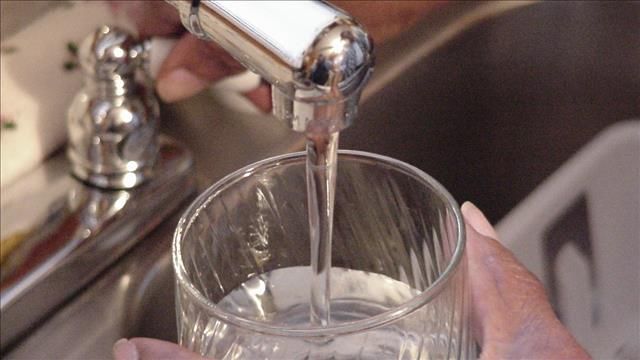SAN BENITO — Resident Alfonso Zuniga says his utility bill has tripled in the past 10 years.
The reason — he believes he’s paying for a $17 million water plant that has not operated in about four years.
Now, City Manager Manuel De La Rosa is apparently proposing water rate increases in the city already strapped with some of the highest water rates in the Rio Grande Valley.
In recent meetings, De La Rosa has told city commissioners the city might consider two water hikes.
“The comments were general statements so that the elected officials would not be surprised in the future,” De La Rosa stated Tuesday.
He indicated the city was conducting a water rate study.
“Performing water rates studies is a routine business function in the decision-making process,” De La Rosa stated. “I cannot recommend an increase, decrease, or leave as is, if I do not perform the rate study.”
The city has not increased its water rates since 2009, city spokeswoman Martha McClain stated yesterday.
Meanwhile, Finance Director Belen Peña refuted residents’ claims about utility bills tripling in the past 10 years.
“The rates have not tripled in the past 10 years,” Peña stated. “Significant items to be considered in the single bill they receive are the volume of water used, along with garbage collection, storm water fees, illegal dumping assessment and sales tax, all of which are included in that one bill.”
What they’re paying for
Yesterday, residents such as Zuniga complained about utility bills costing them as much as $100 a month.
Ten years ago, he said the total was about $32 for water, sewer and garbage pick up.
Zuniga, a retired Cameron County truck driver, explained the situation in his white frame home on North Austin Street, where he lives with his wife and grandchild.
Pricey utilities
In his living room, Zuniga pointed to this month’s utility bill charging him $109 for services, including $47.35 for water, $35.73 for sewer and $21.04 for garbage pick up.
“That’s a lot — that’s too much,” Zuniga said. “We don’t even use too much water. We’re just me and my wife and grandkid.”
Across the street, Alfredo Lopez said his monthly utility bills charge him about $80, which includes about $20 for water service.
“It’s outrageous,” Lopez, a retired welder, said in the living home of his white frame home. “I don’t use that much water — just shower. I don’t water my yard and it’s still high.”
However, residents such as Nector Loyola said they understand the city increases its rates to keep up with the rising cost of operations.
Outside his home on North Bowie Street in the Resaca Shores area, Loyola said he pays monthly utility bills of about $76, with less than half going to pay for water service.
“They’ve got to do what they’ve got to do,” Loyola, a retired state worker, said, referring to city officials. “I don’t use that much water. It’s just me here.”
For years, residents here have complained about paying what many call some of the highest water rates in the Valley.
Comparisons in the Valley
Currently, the city charges a residential water rate of $20.59 for homes with 5/8-inch meters using up to 2,000 gallons and a sewer rate of $29.09.
In Harlingen, the city charges a flat residential water rate of $7.93 for homes with 3/4-inch meters. The city charges $1.65 per 1,000 gallons.
Harlingen charges a flat residential sewer rate of $6.18 for homes with 3/4-inch meters. The city charges $3.66 per 1,000 gallons.
How we got here
In San Benito, high water rates are tied to the $17 million water plant that opened in 2009.
That year, a previous City Commission approved a $2 water rate increase, to help pay off that water plant.
On the city’s website, a water rate schedule for the period from 2010 to 2014 shows the base rate remained $20.59 for homes with 5/8-inch water meters while rates increased for homes with larger meters.
Across town, residents such as Zuniga complain about struggling with high utility bills to help pay off the $17 million water plant.
When it opened in 2009, the water plant was hailed as a state-of-the-art system.
Then in 2014, the city shut down the plant, citing problems with its water filtration system.
That year, the city filed a lawsuit against companies involved in the water plant’s design and construction, arguing the plant did not properly operate.
Last December, the city settled a $9 million lawsuit that included $1.87 million in cash and $3.1 million worth of services from Evoqua Water Technologies.
As part of the settlement, Evoqua agreed to perform $3.1 million in services aimed at reviving the water plant.
De La Rosa has said he expects the water plant to become operational in about a year.





